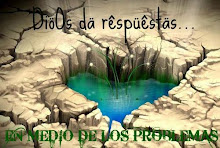DEFINITION OF ECOLOGY
Ecology is the branch of science that deals with the interactions between organisms and their environment (chemical and physical factors).
Living organisms are grouped as biotic ecosystem, for example, bacteria, fungi, protozoa, plants, animals, etc. In short, the biotic factors are all living in an ecosystem or, more universally, in the biosphere.
Moreover, the chemical and physical factors are grouped as abiotic ecosystem. This includes all the inert environment, eg light, water, nitrogen, salts, food, heat, weather, etc.. After then, the abiotic factors are the nonliving elements in an ecosystem or the biosphere.
Ecology is a multidisciplinary science that draws on biology, climatology, Chemical Engineering, Mechanics, Ethics, etc..
WHY IS A MULTIDISCIPLINARY SCIENCE ECOLOGY?
Ecology uses to physics because all biotic processes are related to the transfer of energy from producers, which exploit the light energy to produce complex organic compounds to bacteria, which obtain chemical energy by the disintegration of the molecular structures other agencies.
Chemical Ecology uses because all metabolic and physiological processes of biosystems depend on chemical reactions. Furthermore, living things make use of chemicals found in the environment.
Ecology is related to geology because the structure of biomes depend on the geological structure of the environment. Living things can also modify the geology of a region.
For Ecology, Geography is a very important discipline because of the specific distribution of living beings on Earth.
jueves, 10 de diciembre de 2009
definition of ecology
Suscribirse a:
Enviar comentarios (Atom)

No hay comentarios:
Publicar un comentario